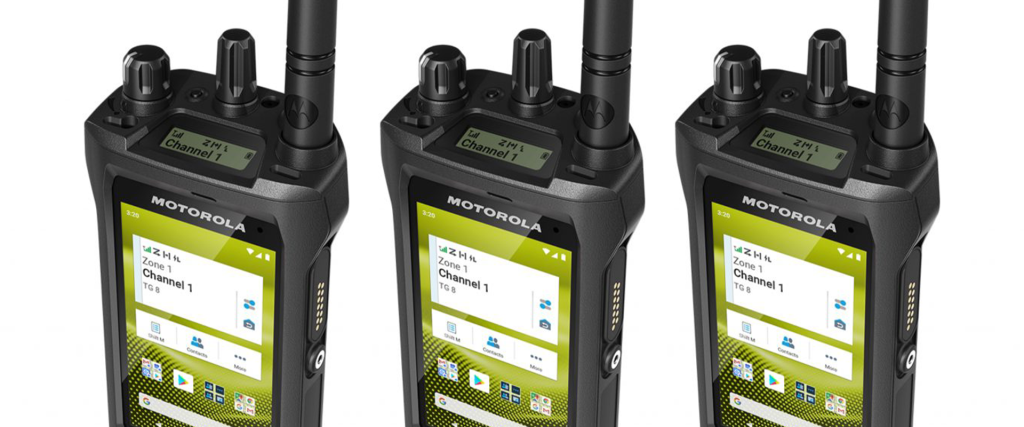In a world dominated by technological advancements, the realm of two-way radio communications has undergone a remarkable journey. A case in point is the migration from analog to digital radios.
You may be a radio user or just someone curious about how radios work. Either way, understanding the difference between analog and digital two-way radios is crucial to your journey. So, let’s embark on that journey and answer the question, “What is the difference between analog and digital radios?”
The Basics: What is Analog Radio?
Let’s start with the basics. What is analog radio? Analog radio is the traditional method of transmitting information through radio waves. Imagine tuning into your favorite AM or FM station on your car radio – that’s analog radio.
In analog systems, information like voice or music is converted into electrical signals with different strength and pitch. These signals are transmitted through the air, and the receiving radio interprets these fluctuations to recreate the original sound. When this process is duplicated by the receiving radio, you have analog two-way radio communication.
The New Kid on the Block: Digital Two-Way Radios
On the other side of the coin, digital two-way radios represent the contemporary face of communication technology. Unlike their analog counterparts, digital radios add a step to the above process.
Digital radios convert analog information into binary code. They then transmit this digital information over the air to the receiving radio. The receiving radio then translates this digital signal back into the original sound.
This new digital format offers several advantages:
- Enhanced clarity
- New features like noise-cancellation, GPS, and texting
- Improved security
- More efficient use of the available bandwidth.
Digital Two-Way Radio: Efficiency in Action
Digital two-way radios take communication efficiency to a whole new level. Analog vs digital waves transmit more information in less time. This makes possible features like text messaging, GPS tracking, noise-cancellation, and advanced security measures.
By contrast, analog radios may struggle to keep up with the demands of modern communication. In professional, government, and public safety settings quick, clear, and reliable information exchange is paramount.
Breaking the Silence: Analog's Noisy Dilemma
Picture this: you’re in a crowded city, and you’re trying to communicate with someone using an analog radio. The bustling ambient noise of the urban environment can seep into your communication. This will cause distractions and disruptions that make understanding the message challenging. This is not so with digital radios.
Digital radios, with their noise-cancellation capabilities, offer a solution to this noise problem. They can filter out background noise, ensuring your message comes through loud and clear, even in the midst of the chaos. If you haven’t experienced this, you owe it to yourself to call RCS Communications and request a demo.
Got You Covered: Coverage of Digital vs Analog Radio
It is often argued that the coverage footprint of analog radio is slightly larger than digital radio. However, that is not the whole story. The analog radio signal degrades slowly over distance. Volume and clarity decrease as interference increases, and the message gets harder and harder to understand.
Digital radio, however, is different. Because the digital message is re-created by the receiving radio, the message comes out clear, concise, and complete. The quality of a digital transmission stays perfect until coverage is completely lost. No fading out or interference toward the end of the coverage footprint.
Security Check: Encryption in the Digital Realm
In an era where data security is a major concern, digital radios have a clear advantage. Unlike analog signals, which can be intercepted and eavesdropped on relatively easily, digital transmissions can be encrypted. This means your conversations remain private and secure. Security is a valuable asset in business, law enforcement, and emergency situations.
Battery Power: Full Steam Ahead!
Although battery life poses a challenge for any mobile communication device, digital technology stands out for its efficiency. Digital radios, in particular, offer an impressive boost, providing users with up to 40% longer battery life. This extended lifespan empowers digital radio users to communicate seamlessly throughout the entire day without the inconvenience of frequent battery changes or recharging.
Back-Talk: Compatibility & Adaptability
Analog radios have a longstanding history of backward compatibility. Many analog devices are still in use today. However, the tech landscape is evolving, and digital radios are becoming the new standard. With new digital converters, new digital radios can even talk to traditional analog radios.
Migration to digital technology might involve some upgrading of your existing equipment. However, the functionality, reliability, and security make it a worthwhile investment; and companies like RCS Communications can help make the migration as painless as possible.
Migration: The Waves of Change Are Upon Us
In the modern communication technology landscape, the shift from analog to digital radio can’t be denied. While analog radios have served us well for decades, the new digital wave brings a tsunami of improvements. From clearer communication, and added features to enhanced security, the waves of change are upon us. The migration to digital has begun.
RCS Communications Can Help Navigate Your Migration
Whether you’re holding onto your trusty analog radios or diving headfirst into the digital realm, one thing is certain; RCS Communications can help you navigate the waves of change between analog and digital two-way radio.
When navigating your course between analog and digital, make RCS Communications your trusted communications partner.
RCS Communications has specialized in two-way radio and wireless communications in Kentucky and Indiana for over 70 years. They are the largest Motorola dealer in Kentucky and Indiana. RCS Communications’ account managers and certified technicians have extensive experience. They can help you with either analog or digital platforms, and on-site as well as wide-area communications.
RCS Communications provides exceptional communications products and services throughout all its locations.

